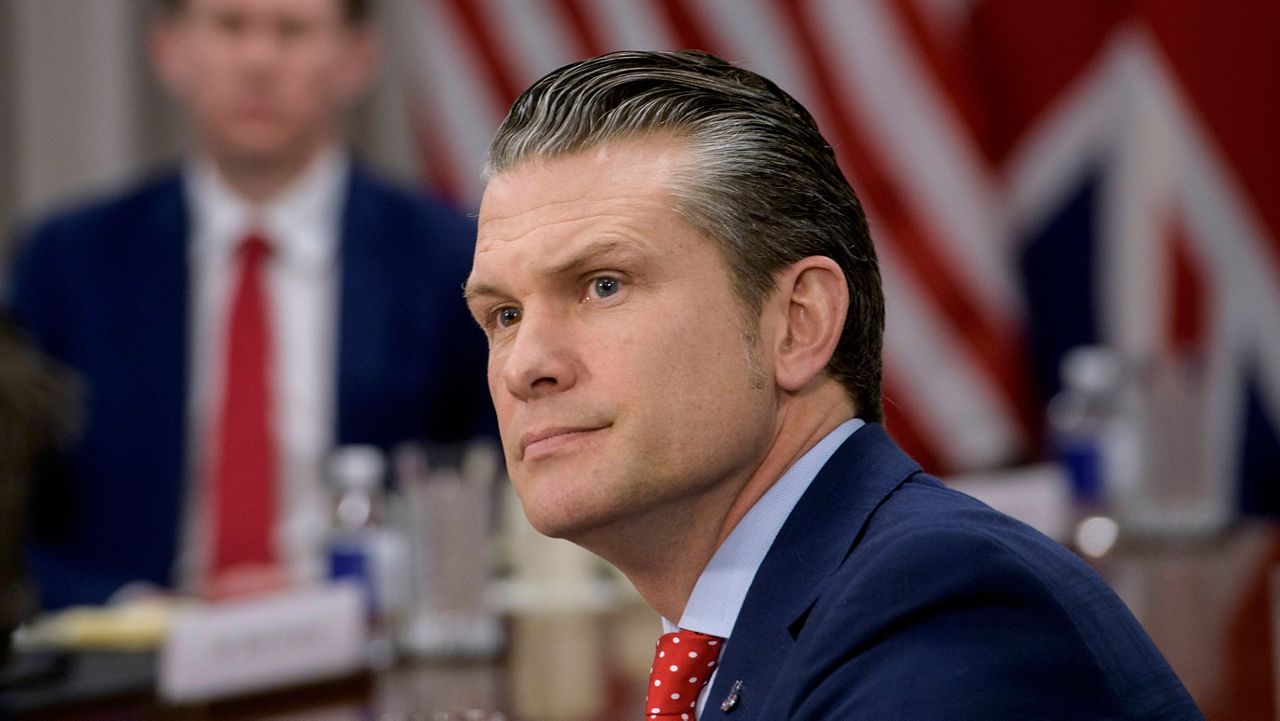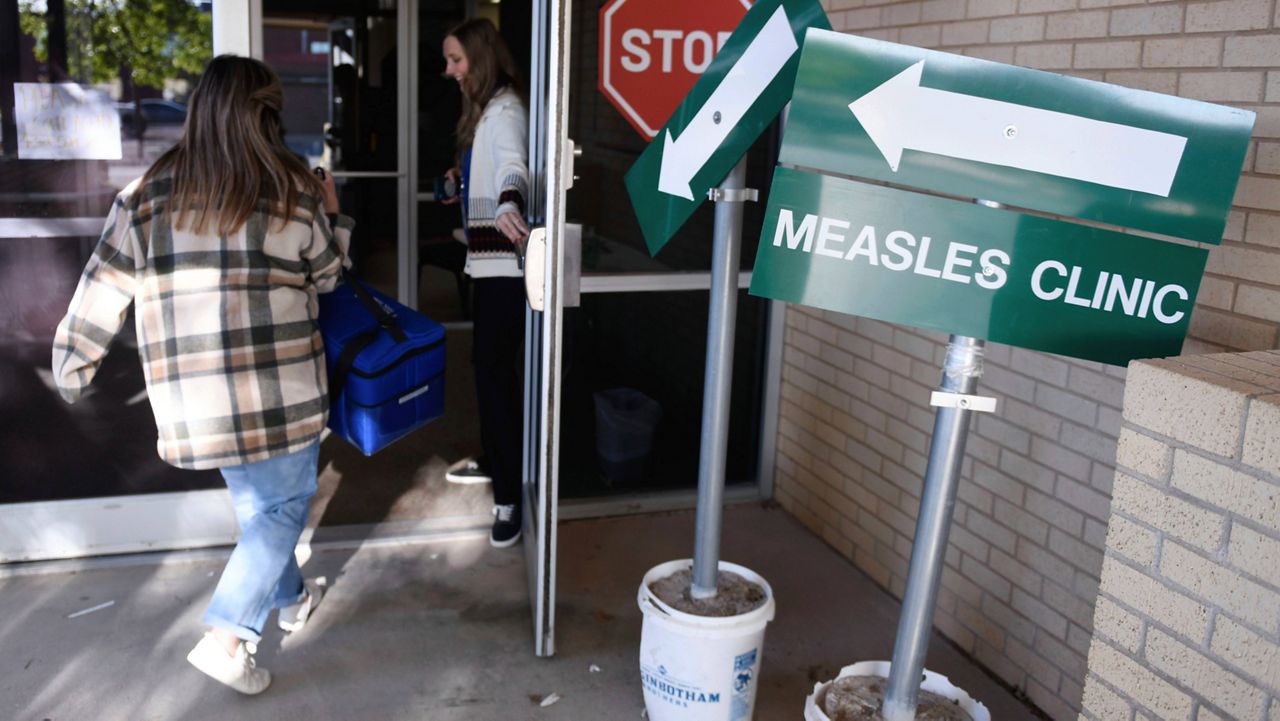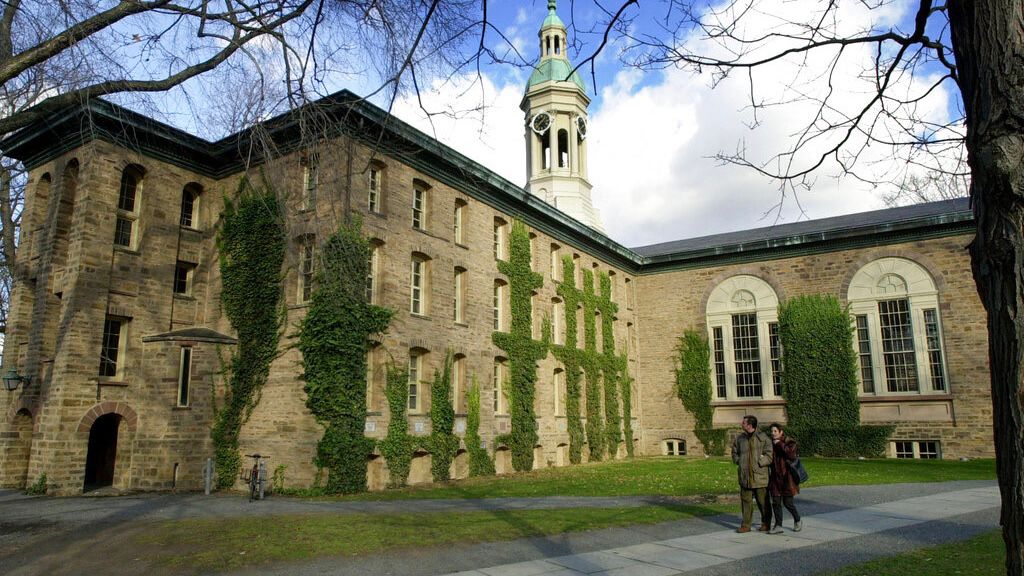WESTMINSTER, Calif. — James Nguyen’s grandmother always told him to do what makes him happy. For the teen, that thing is science.
“I like how it describes reality in a way nobody can argue against it,” he said.
The senior at La Quinta High School in Westminster works on science projects for fun. But now he’s working on an especially meaningful project. Shortly after Nguyen and his mother immigrated to the U.S. in 2019, he found out his grandmother had cancer. The brain tumor was too big to remove through surgery at the start of the global pandemic in 2020. He was was unable to visit her in Vietnam before she died.
“It was like a slap in the face because it’s like death is here and real,” he said.
It was a dark, painful time. Nguyen said it was “devastation, like, emotionally. But that inspired me to go deeper into my passion for science.”
He took a deep dive into cancer, reading everything he could about it and contacting experts in the field of cancer research. He wrote eight research papers about the topic within two years. Through the process, he learned about microfluidic chips. While he said there’s a lot of complicated science that goes into it, simply put he explains the chip like this, “So you know how a filter works, like a normal filter. If you run water through the filter, everything is going to go through, except the big things will stay on top.”
Nguyen said it usually takes a lab or a machine to detect what “stayed on top.”
After having a conversation with his cousin about brushing their teeth and how often his cousin skips the usually daily routine, Nguyen said something clicked in his head. He said he thought he could put a chip into a toothbrush to make it cancer detectable.
He worked on developing a prototype, sketching his ideas, smashing an electric toothbrush to see how a chip could go inside. He also worked with 3D models. Some of what he developed is secret, but he said it is like a double filter system to detect cancer in saliva inside a toothbrush.
In his cousin’s case, “Then he would have more interest in brushing his teeth,” Nguyen said while smirking and laughing.
His idea and research is the reason he was named one of 100 Rise Global winners. Former Google CEO Eric Schmidt and his wife, Wendy, found the Rise Global Initiative. The $1 billion program to support students ages 15 to 17 who are working to make a difference in people’s lives.
More than 120,000 students from over 170 countries submitted their ideas this year. Rise Global winners are offered lifetime benefits that include college scholarships and mentorships, as well as opportunities for career development, like business funding and educational support.
Nguyen’s cancer-detecting toothbrush is being developed in a lab and being tested for things like how toothpaste affects detection.
Nguyen said this project is allowing him to do meaningful science he said will hopefully tackle what he calls the “emperor of all diseases.”
“If I’m doing things that make me happy, I’m sure my grandmother is looking,” said Nguyen as gestured up, “would be happy too.”











